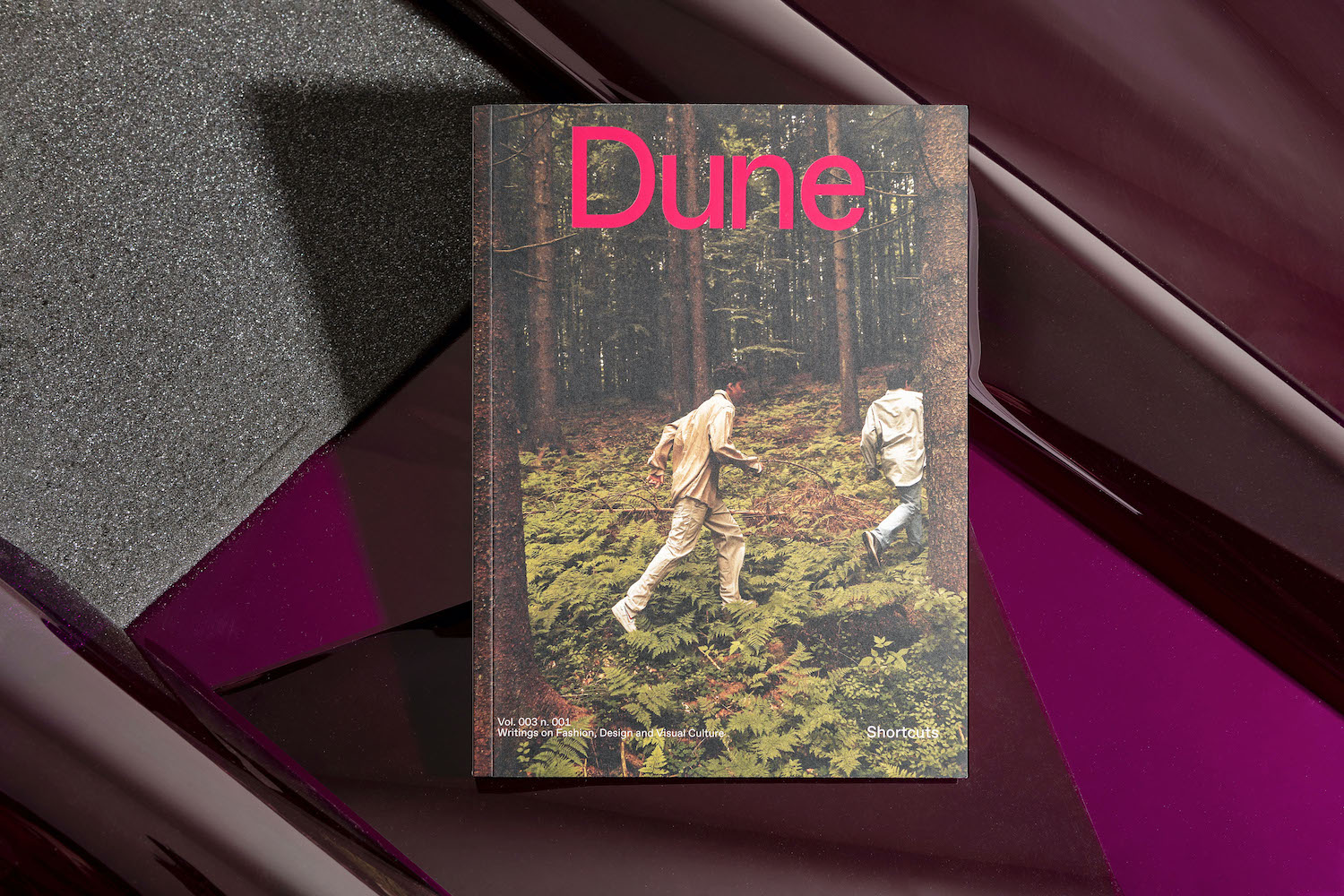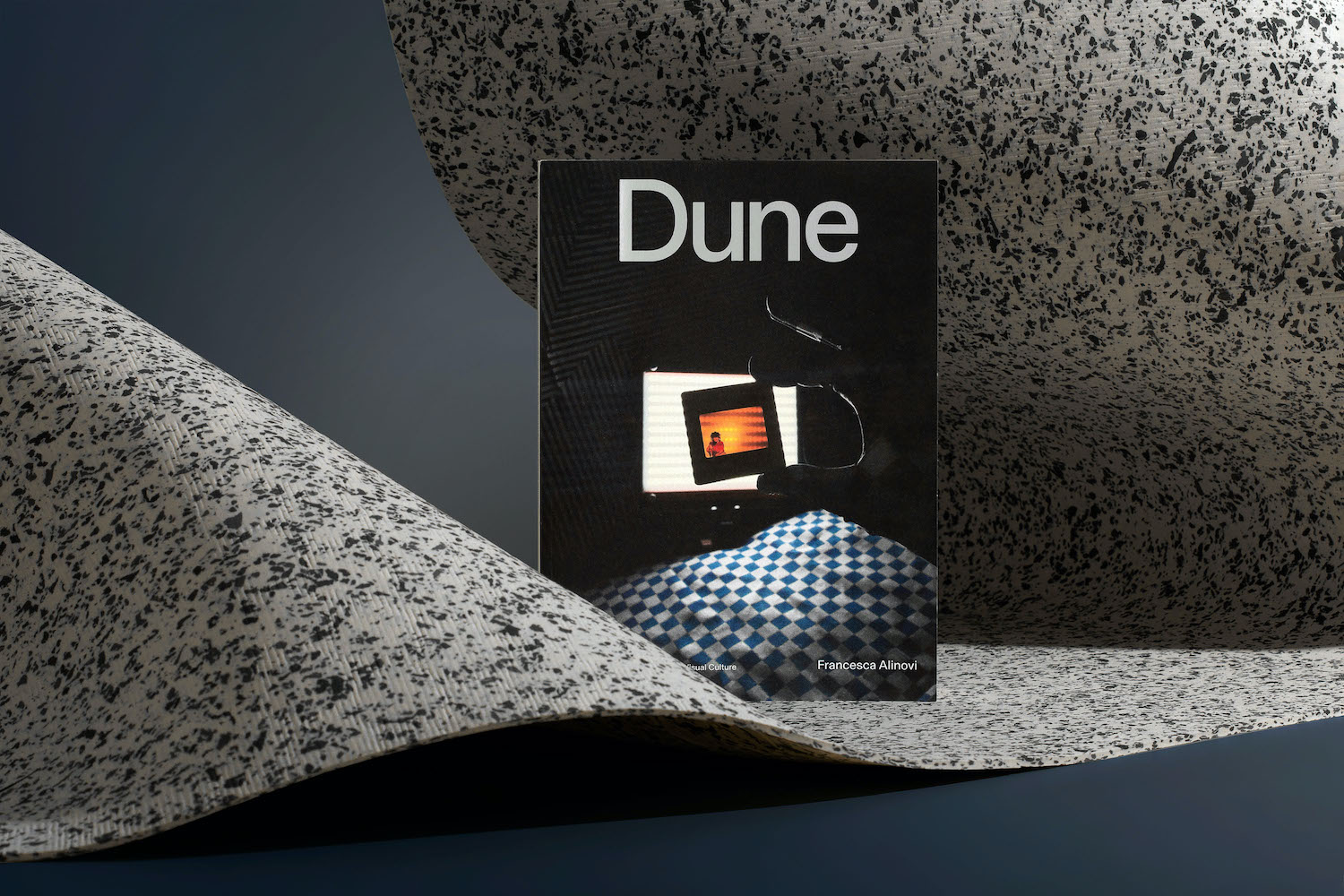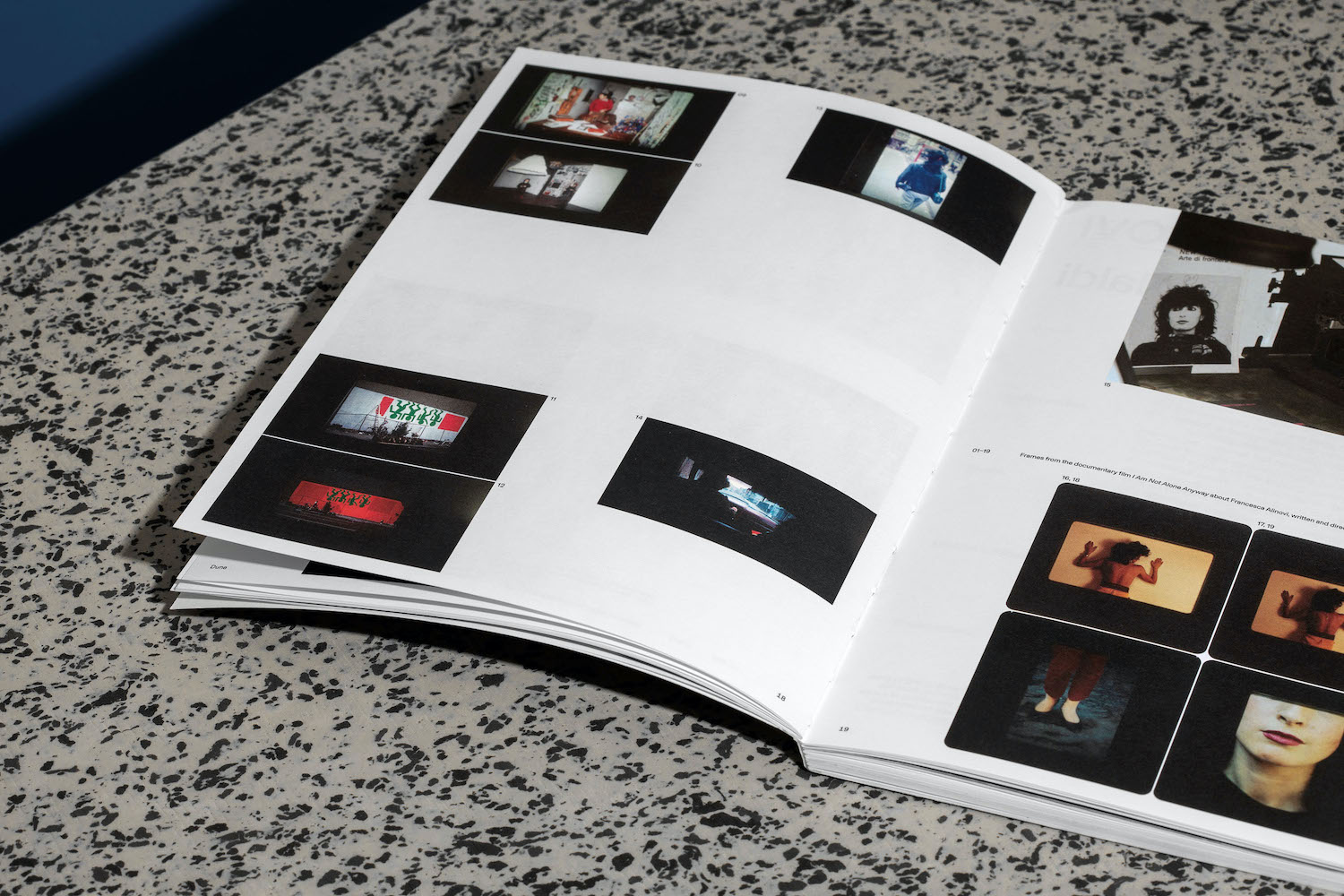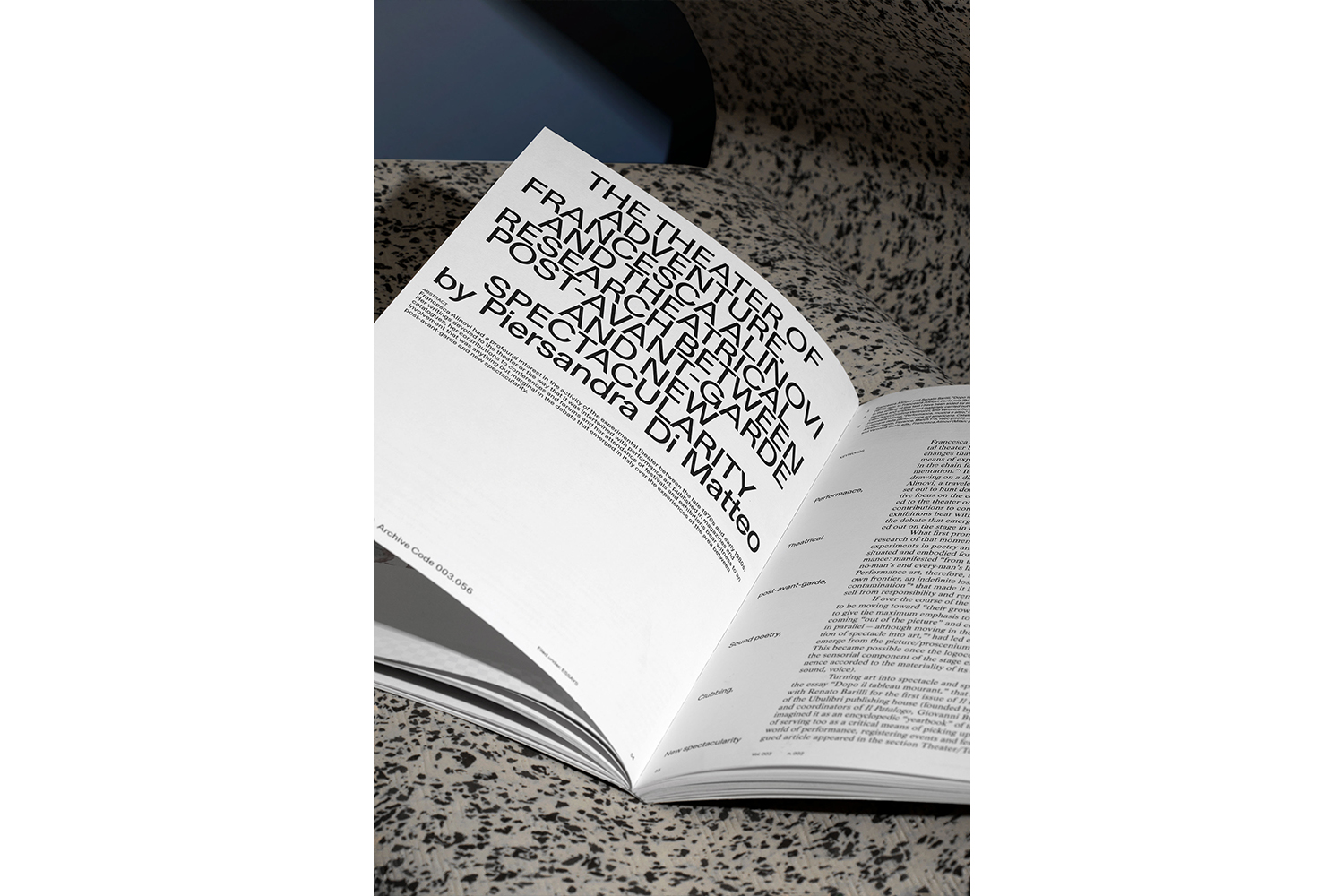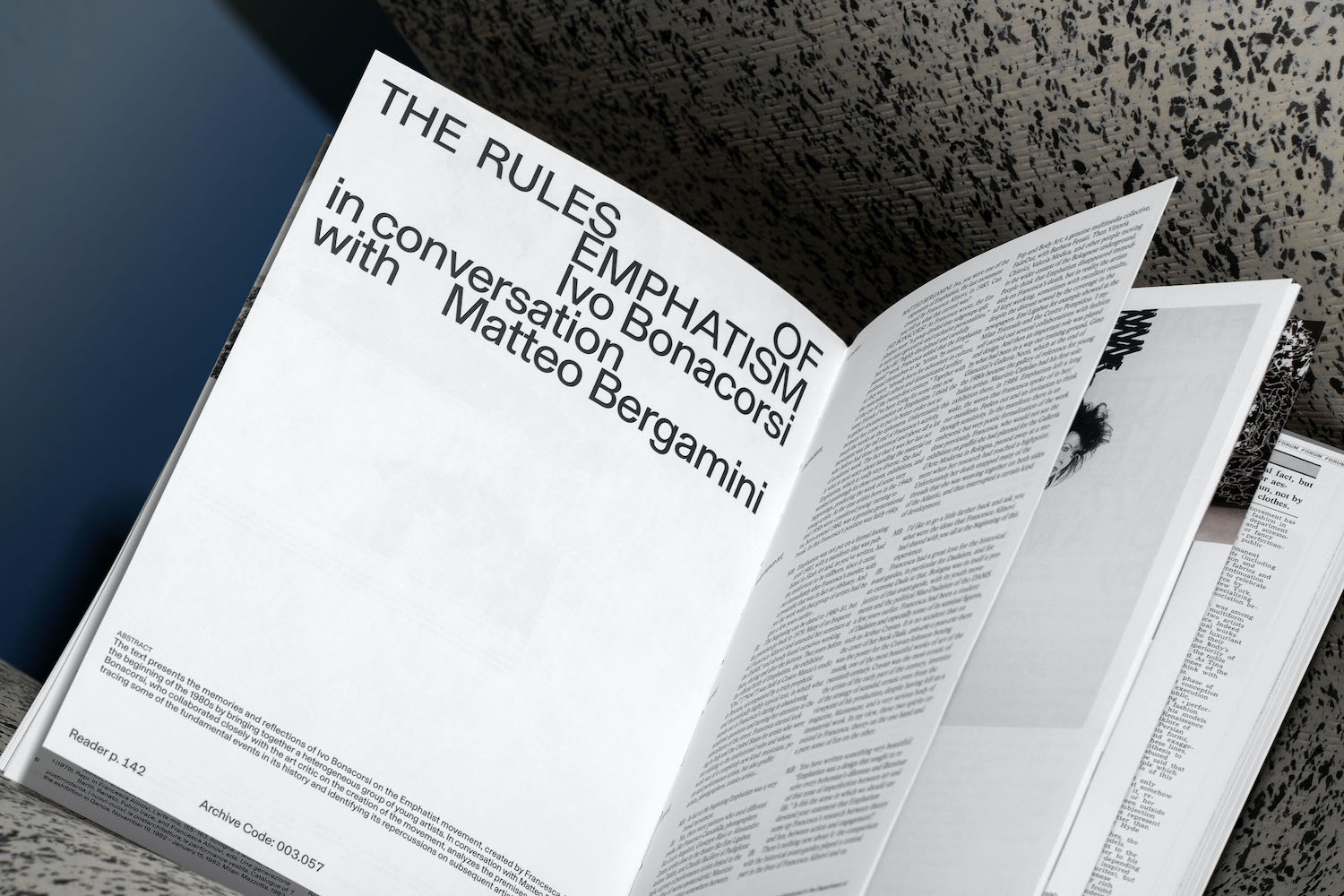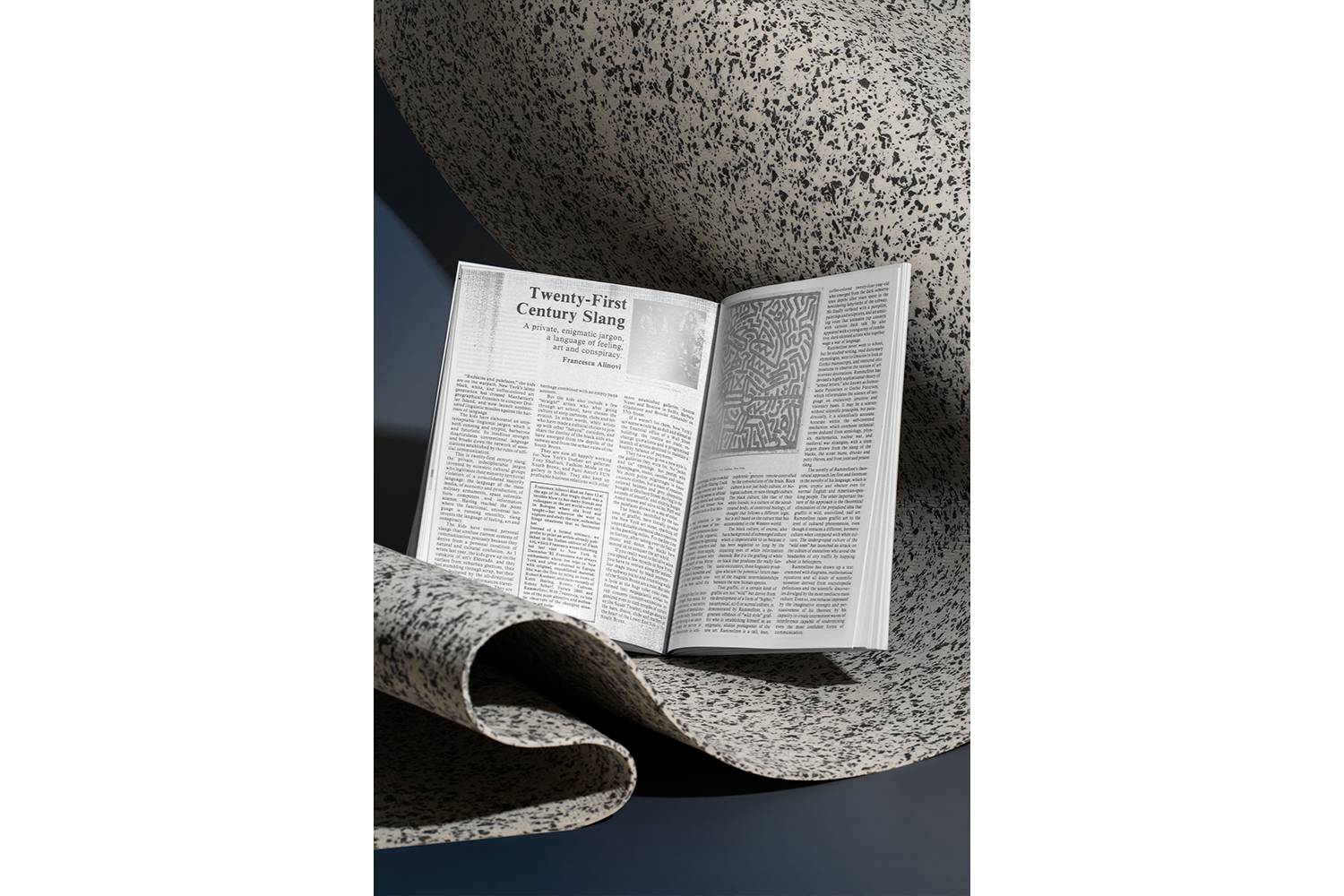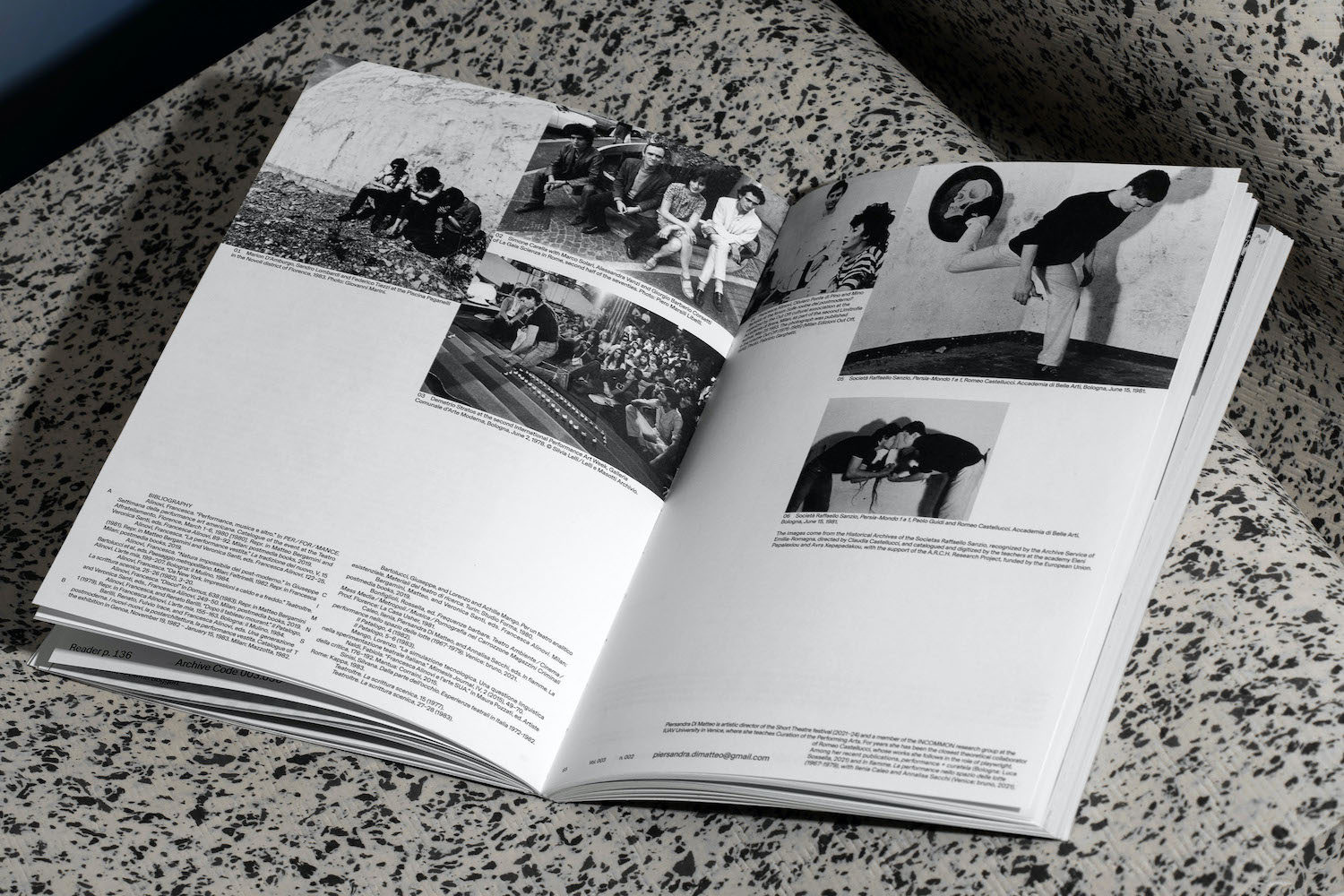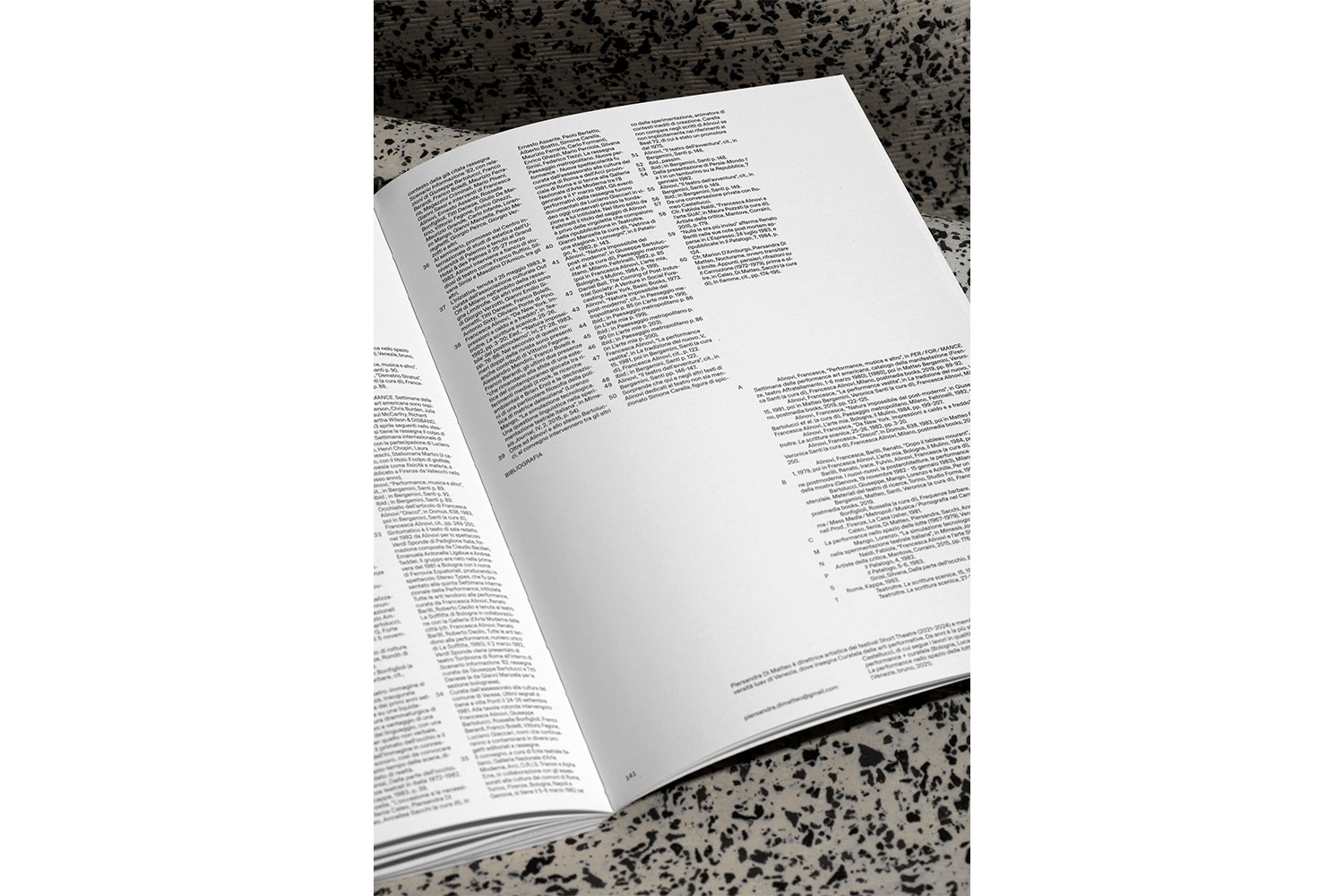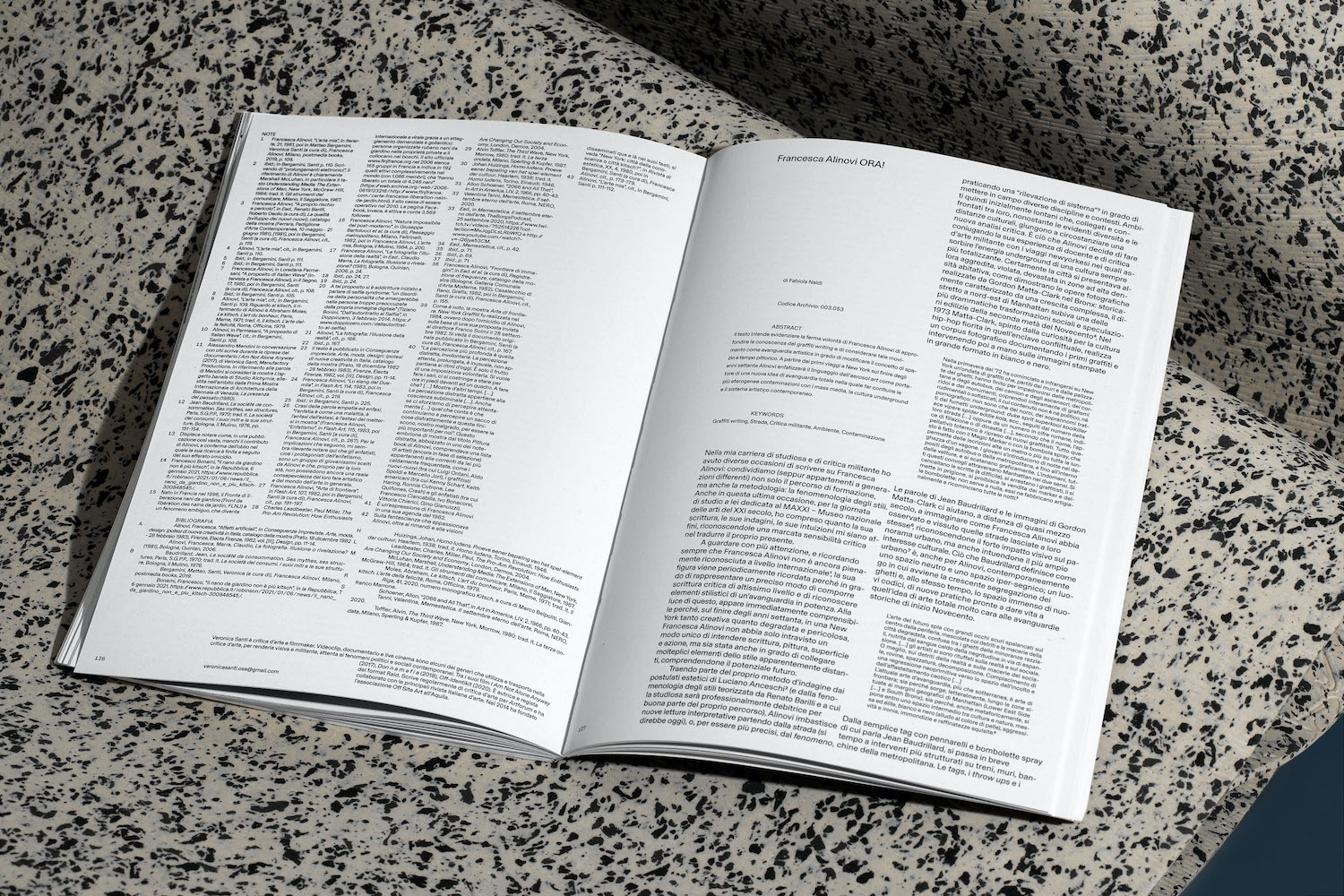Dune
Writings on Fashion, Design and Visual Culture.
Dune is a biannual, bilingual academic journal of fashion and visual culture, with open call, welcoming scientific contributions. It is directed by Maria Luisa Frisa, founder of the bachelor course in Fashion Design and Multimedia Arts at Iuav University of Venice, is published by Flash Art, with graphic design by Multi Form.
The title refers to the infamous science fiction novel Frank Herbert published in 1965, and to the film directed by David Lynch in 1984. Dune is intended as a space for theoretical, critical and visual examination and presentation of new research. It reflects interests in research, writing methods and theoretical production of the team of the fashion courses at Iuav. Each issue is monothematic; the theme is defined by a word or a sentence that permeates contents, focusing on either pivotal figures and circumstances or the unveiling of stories that are not yet well known while giving space to the voice of young authors.
Dune accepts ideas and proposals from scholars and the academic papers it publishes are subject to Double-blind Peer Review. The scientific committee is characterized by the presence of academics, creatives and professionals active in the realms of criticism, fashion studies, contemporary art, architecture, the running of museums, curating, publishing, art direction and photography.
Each issue can gather different kinds of contributes: Chronicles, Conversations, Essays, Performative Writings, Reviews, Self-Analysis, Studies.
Dune is a part of the research cluster FLAIR and it is supported by donors that trusted the editorial project. The journal, devoid of traditional advertising pages, is an expression of a work group interested to new forms of dialogue with companies, institutions and collectors.
Discover the publication by purchasing your copy and unpublished content by following the Instagram channel @dunejournal. Take a look at the Open Access archive here.
Editor in Chief
Maria Luisa Frisa
Editor
Saul Marcadent
Editorial Assistant
Elena Fava
Editorial Board
Giorgio Camuffo
Elisabetta Cianfanelli
Dylan Colussi
Riccardo Dirindin
Elena Fava
Marta Franceschini
Gabriele Monti
Alberto Moreu
Marco Pecorari
Lorenzo Rindori
Manuela Soldi
Scientific Committee
Miren Arzalluz, Palais Galliera, Paris
Paola Bertola, Politecnico di Milano
Manuel Blanco, Universidad Politécnica de Madrid
Paul Boudens, graphic designer
Silvia Calderoni, performer
Bruno Ceschel, University of the Arts London
Judith Clark, London College of Fashion
Paola Colaiacomo, fashion scholar
Giovanni Corbellini, Politecnico di Torino
Milovan Farronato, critic and curator
Elke Gaugele, Akademie der Bildenden Künste
Francesca Granata, Parsons School of Design New York
Stefano Graziani, photographer
Alistair O’Neill, Central Saint Martins College, London
Patrizia Ranzo, Università degli Studi della Campania Luigi Vanvitelli
Stefano Tonchi, journalist
Paolo Volonté, Politecnico di Milano
Louise Wallenberg, Stockholm University
Graphic Design
Multi Form, multi-form.it
Translations
Huw Evans
Copyediting and Proofreading
Anna Albano ⁄ Language Consulting Congressi srl
Publishers
Flash Art
Gea Politi e Cristiano Seganfreddo
Image Sourcing and Licensing
Tommaso Pagani
Donors
Maria Grazia Chiuri
Enzo di Sarli and Beatrice Rossaro
Nicoletta Fiorucci, Nicoletta Fiorucci Foundation
Fondazione In Between Art Film
Maison Valentino
Printed by
Grafiche Veneziane
ISSN
2705-0084
Call for Papers
Dune Vol. 004 No. 001
Biosphere
Dune welcomes ideas and proposals from scholars, whose contributions are subjected to a process of double-blind peer review before selection for publication. For its seventh issue, the journal is concentrating on the concept of biosphere, as a network of relations and new alliances between human and nonhuman beings, in the sense in which Timothy Morton understands them. Broadening its gaze, the issue intends to investigate the aesthetic, cultural, social, and political dimension of sustainability, in an attempt to provide the methodological tools and contents needed to approach this concept and to analyze and uncover new meaning in it, partly on the basis of theorizations like the ones put forward by Morton, who considers it of little use in so far as it is a product of the corporation (“What Are We Sustaining?”, 2018). The author asserts that an ecological awareness requires first of all a radical reconsideration of the meaning of society, a vision of social space as not exclusively human. In doing so, he reminds us of the work of Carla Lonzi, who gave the feminist movement a global dimension. According to her the movement’s interest was not limited to the problem of the relations between people at an international level but was concerned with the experience of all creatures with a body and living in a biosphere. Recognizing the central role of fashion studies, sensitive to the relations between fashion and the ecological transition toward a reassessment of systems of production and the mingling of the craft and industrial dimensions, the magazine’s editorial board is also interested in reflections on the environment within the social sciences, writing on ecology and visual culture. In the artistic sphere, the critic and curator Nicolas Bourriaud invites us in his book the L’Exforme: Art, idéologie et rejet (2015; 2017) to reexamine the implications of the idea of waste, focusing on a model of knowledge that takes into consideration apparently insignificant indications, less intentional traces (see in this connection Carlo Ginzburg’s essay Il filo e le tracce, dating from 1979), rejects and the “eloquent” gaps that reveal the choices made and the affinities in the construction of the archive and speak of the phase of its constitution. Considering practices that range from upcycling and recycling to co-design, the editorial board pays particular attention both to projects and concrete and virtual experiences in which knowledge is shared from a horizontal perspective of enterprise and to the theme of materiality — see in this connection the ideas put forward by Giuliana Bruno in Surface: Matters of Aesthetics, Materiality, and Media (2014); by Freek Lomme in Can You Feel It? Effectuating Tactility and Print in the Contemporary (2016); and by Laura Tripaldi in Menti parallele: Scoprire l’intelligenza dei materiali (2020). Finally, in relation to the importance of a slow culture, the environmentalist David Fleming, author of the book Lean Logic: A Dictionary for the Future and How to Survive It (2011), highlights the indispensability of localism, of local communities and of sustainability in research activities, whatever the field of action, the focus of one’s own interests, and the discipline in which one is operating.
Important dates
March 30, 2023
delivery of abstract (in Italian or English, about 250 words) and short biography to dune@iuav.it
April 10, 2023
communication of acceptance of abstract
June 5, 2023
delivery of article (in Italian or English, about 4000 words)
July 5, 2023
communication of results of double-blind peer review
July 20, 2023
delivery of definitive article
November 2023
Publication
